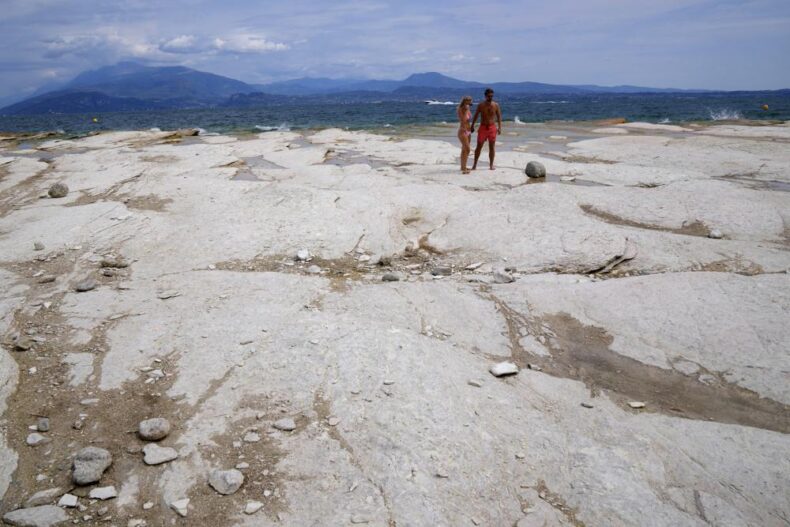By Harsha Josephine Antony | On Sun 14 Aug 2022 | 5.45pm IST |
Photo credit: AP Photo
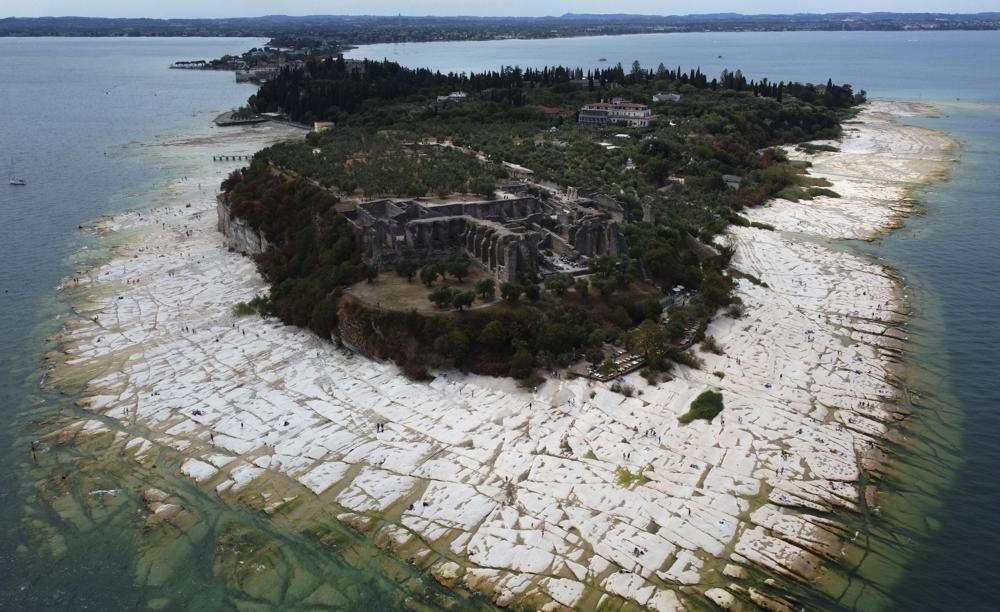
Italy’s largest lake has reached its lowest level recorded, warming water to a temperature comparable to the Caribbean Sea average. Tourists found this holiday radically different from previous years. It could be due to the decreased rainfall and the prevalent snowfall rate. Scientists consider this a great threat to the ecosystem.
The greatest drought in decades in Italy has dropped Lake Garda, the country’s largest lake, to almost its lowest level ever recorded, revealing previously submerged rocks and warming the water to temperatures comparable to the average in the Caribbean Sea. Lake Garda, in northern Italy, is known for its crystal clear water. The Rocca Scaligera, a stronghold with harbour views, dominates the town of Sirmione at the southern end. A Roman villa can be found in the nearby archaeological site of Grotte di Catullo. Il Vittoriale degli Italiani, on the lake’s western side near Gardone Riviera, is the former house of poet d’Annunzio. The Dolomites surround Riva del Garda, a northern resort. Tourists arriving at the popular northern lake on Friday for the start of Italy’s major summer holiday weekend found a radically different sight than in previous years. A vast length of bleached rock went well beyond the regular beach, surrounding the southern Sirmione Peninsula with a yellow halo between the green hues of the ocean and the trees on the shore. “We visited last year, enjoyed it, and came back this year,” visitor Beatrice Masi remarked as she sat on the rocks. “We discovered that the scenery had altered dramatically. We were surprised when we arrived since we had done our customary tour around, and there was no water.”
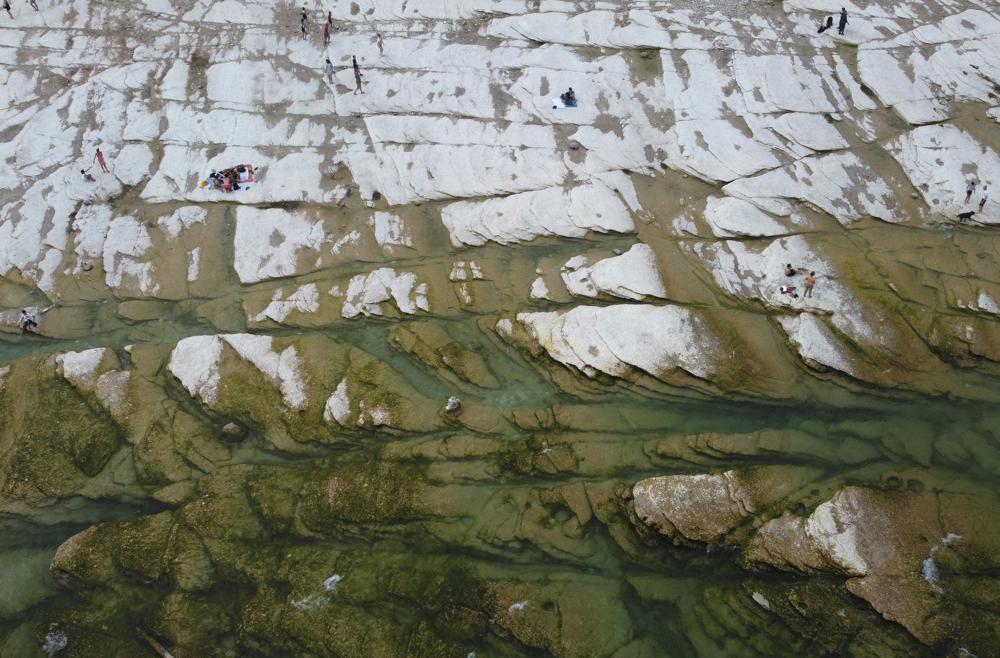
Current rainfall and snowfall
Northern Italy hasn’t received substantial rainfall in months, and snowfall this year was down 70%, drying up vital rivers such as the Po, which flows through Italy’s agricultural and industrial core. This summer, numerous European nations, including Spain, Germany, Portugal, France, the Netherlands, and the United Kingdom, have experienced droughts, which have harmed farmers and shippers and prompted authorities to restrict water consumption. The dry state of Italy’s longest river, the Po, has already resulted in billions of euros in losses for farmers who rely on it to irrigate fields and rice terraces.
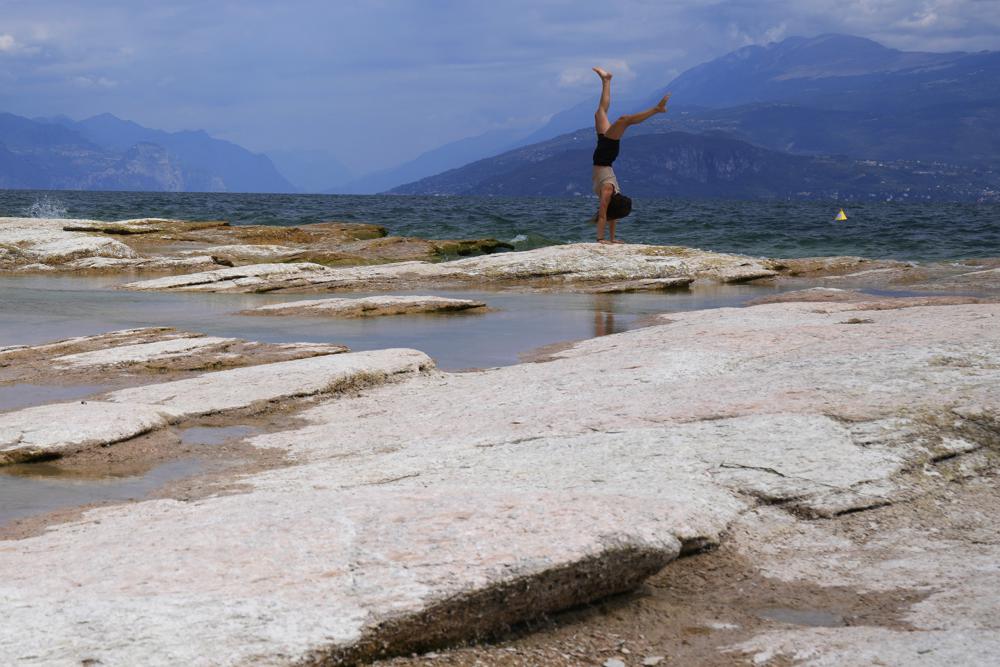
Lowering of quantity
To compensate, officials let 70 cubic metres (2,472 cubic feet) of water per second flow out of Lake Garda into surrounding rivers. However, in late July, they lowered the quantity to safeguard the lake and the financially crucial tourist associated with it. With 45 cubic metres (1,589 cubic feet) of water being redirected to rivers each second, the lake was 32 centimetres (12.6 inches) above the water table on Friday, close to the record lows set in 2003 and 2007. Garda Mayor Davide Bedinelli stated that he must safeguard farmers and the tourism economy. Despite cancellations, especially from German tourists, during Italy’s recent heat wave in late July, he asserted that the summer tourism season was progressing better than predicted. “Drought is a problem that we have to cope with this year, but the tourist season is not in threat,” Bendinelli posted on Facebook on July 20. He acknowledged that the lake was losing two cm of water every day.
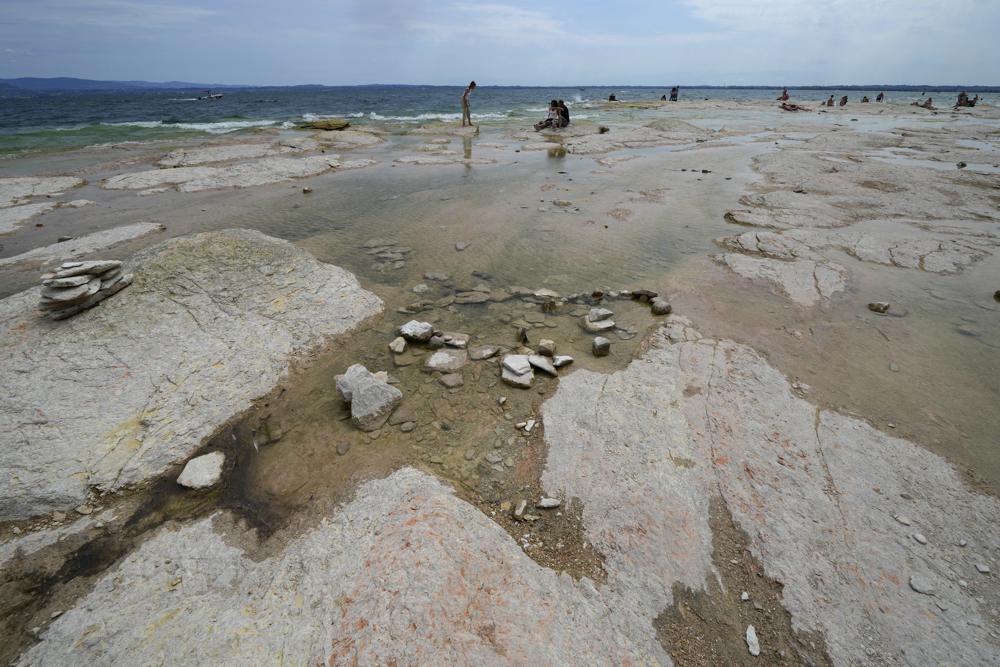
Lake’s current temperature and level
Meanwhile, according to seatemperature.org, the lake’s temperature has been above average for August. On Friday, the water temperature on the Garda reached approximately 26 degrees Celsius (78 degrees Fahrenheit), several degrees higher than the typical August temperature of 22 degrees Celsius (71.6 degrees Fahrenheit) and close to the Caribbean Sea’s average of roughly 27 degrees Celsius (80 F). The lake’s enlarged coastline means fewer people were hiring beach chairs and umbrellas, according to Mario Treccani, who runs a lakeside concession of beach chairs and umbrellas. “The water is normally a meter or higher,” he said from the rocks. He recounted that on windy days, waves from the lake would wash up onto the vacationers, pointing to a little wall that generally protects the water from the beach chairs. Not any longer. “It’s a little upsetting. Previously, you could hear the breaking waves here. You don’t hear anything now,” he explained.







